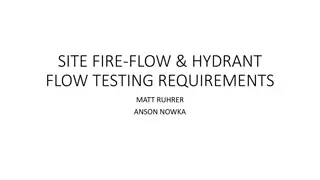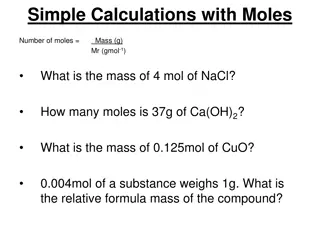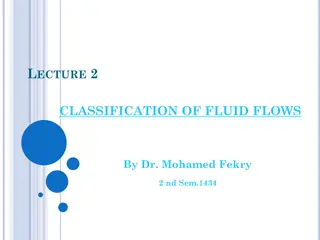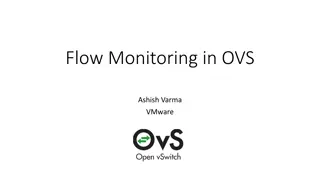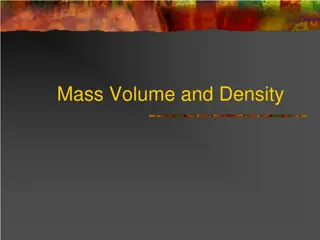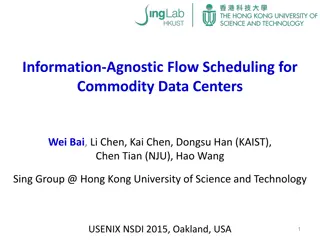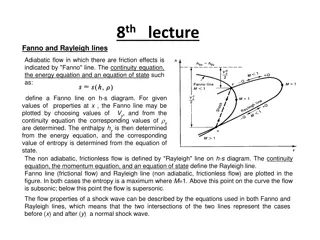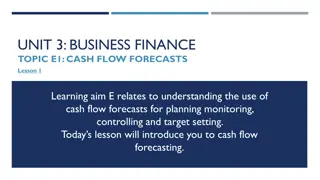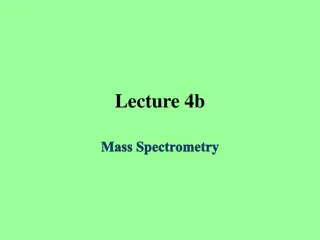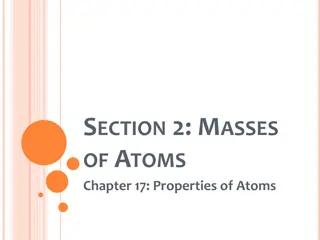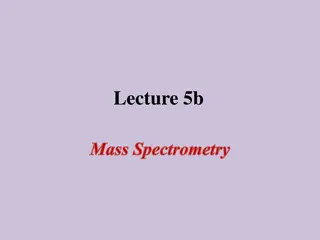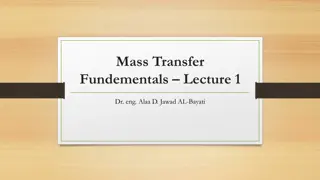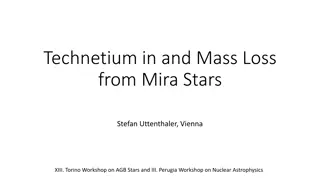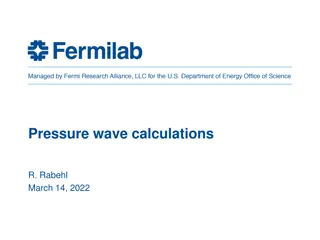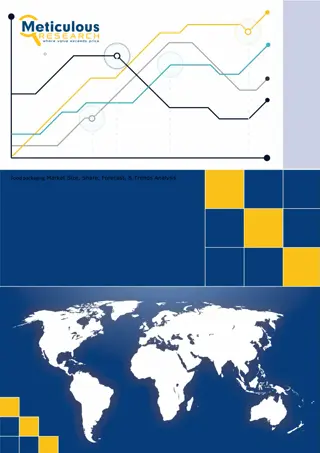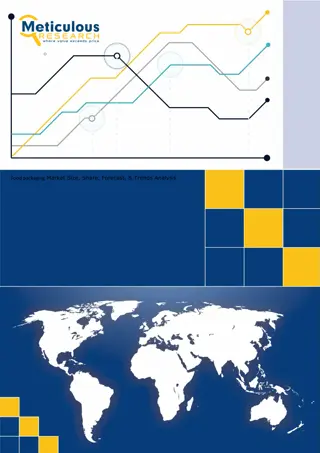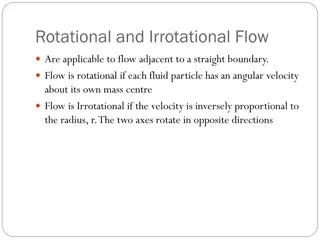Understanding Mass Media and Communication for the Academic Year 2020/2021
This content delves into the science of media, communication, and mass communication for the academic year 2020/2021. It explores the role of mass media in public communication, the characteristics of mass media, and the various types of mass media such as books, print media, films, radio, televisio
8 views • 11 slides
Unveiling the Best Mass Gainers in India for Maximum Muscle Growth
Discover the ultimate solution for achieving your muscle-building goals with the best mass gainers available in India. Our comprehensive guide delves into the top-rated products designed to support your mass gain journey effectively. Whether you're a beginner or a seasoned fitness enthusiast, these
6 views • 1 slides
The Psychology of Flow: Achieving Total Focus and Optimal Performance
Engage in activities for their intrinsic value, where the ego diminishes, and time seems to vanish - that's when flow occurs. This optimal psychological state involves deep concentration, clear goals, and a sense of control. By embracing challenges and staying in the present moment, one can cultivat
0 views • 13 slides
Understanding Mass and Inertia in Physics
Mass and inertia are fundamental concepts in physics. Mass is the amount of material in an object, determining its inertia - the resistance to change in motion. Objects with greater mass require more force to change their state of motion. Mass should not be confused with volume or weight, as they ar
0 views • 21 slides
Understanding Runoff in Hydrology
Runoff in hydrology refers to surface water flow from precipitation and other sources in drainage basins. It plays a crucial role in stream flow and peak flood formation, influenced by factors like overland flow, interflow, and groundwater flow. This article explores the sources of runoff, including
1 views • 27 slides
Gas-Liquid Equipment in Mass Transfer Operations
Gas-liquid operations play a crucial role in mass transfer processes by facilitating intimate contact between the two fluids for efficient interphase diffusion. Various equipment such as sparged vessels (bubble columns) and mechanically agitated vessels are used to disperse gas or liquid phases, pro
2 views • 27 slides
Understanding Max Flow in Network Theory
In network theory, understanding the concept of maximum flow is crucial. From finding paths to pushing flow along edges, every step contributes to maximizing the flow from a source to a target in the graph. The process involves determining capacities, creating flows, and calculating the net flow ent
2 views • 41 slides
Fire Flow Requirements and Calculation Methods
Detailed information on site fire flow and hydrant flow testing requirements, how to calculate required fire flow, applicable codes and standards including NFPA and IBC, duration of fire flow, methodologies for fire flow calculation, and ISO methods and formulas.
3 views • 30 slides
Understanding Mole Calculations in Chemistry
Explore various mole calculations in chemistry such as determining mass from moles, moles from mass, and comparing particles in different substances. Learn how to calculate the mass of substances, the number of particles, and perform calculations using balanced equations. Dive into concepts like mol
0 views • 49 slides
Importance of Cash Flow Analysis in Financial Management
Cash flow analysis is a crucial financial tool for effective cash management, aiding in evaluating financial policies and positions. It helps in planning, coordinating financial operations, assessing cash needs, and meeting obligations. However, it has limitations as it does not substitute the incom
1 views • 7 slides
Understanding Fluid Flows in Fluid Mechanics
Fluid Mechanics is the study of fluids in motion or at rest, and their interactions with solids or other fluids. Fluid flows are classified based on various characteristics such as viscous versus inviscid regions, internal versus external flow, compressible versus incompressible flow, laminar versus
1 views • 16 slides
Understanding Flow Monitoring in OVS for Efficient Network Management
Learn how Flow Monitoring in Open vSwitch (OVS) allows controllers to track and manage changes to flow tables, enabling efficient network management. Explore topics such as Flow Mod programming, Flow Monitor messages, OVS support, monitoring vs. snoop, and practical examples of flow monitoring in ac
0 views • 9 slides
Understanding Effective Mass in Crystals: Insights and Applications
The concept of effective mass in crystals delves into how electrons interact with the lattice potential, leading to altered particle masses that affect their behavior. This phenomenon is crucial in applying electrodynamics equations to charge carriers in solids, where the electron mass can differ fr
0 views • 18 slides
Understanding Orbital Mechanics: Kepler's Laws, Center of Mass, and Equation of Motion
Exploring the fundamental concepts in orbital mechanics including Kepler's Laws, center of mass calculations, and equations of motion for celestial bodies. Topics covered include the laws of planetary motion, center of mass reference frame, and the concept of reduced mass in celestial mechanics.
0 views • 15 slides
Understanding Mass, Volume, and Density in Physics
Matter, which makes up the universe, has mass and volume. Learn the differences between mass and volume, and weight, as well as how to measure them accurately. Discover why a ton of bricks and a ton of feathers have the same mass but different volume. Understanding the concepts of mass, volume, and
3 views • 12 slides
Understanding Flow Chemistry for Efficient Chemical Reactions
Flow chemistry, also known as continuous flow or plug flow chemistry, revolutionizes chemical reactions by running them in a continuous flow stream. This dynamic process offers efficient manufacturing of chemical products with precise control over critical parameters like stoichiometry, mixing, temp
2 views • 7 slides
Understanding Open Channel Flow and Mannings Equation
This review covers hydraulic devices such as orifices, weirs, sluice gates, siphons, and outlets for detention structures. It focuses on open channel flow, including uniform flow and varied flow, and explains how to use Mannings equation for calculations related to water depth, flow area, and veloci
1 views • 43 slides
Information-Agnostic Flow Scheduling: Minimizing FCT in Data Centers
This study explores information-agnostic flow scheduling for commodity data centers to minimize flow completion time (FCT) without prior knowledge of flow size. Existing solutions requiring prior flow size information are deemed infeasible for some applications and challenging to deploy in practice.
1 views • 46 slides
Revolutionizing Sonographic Blood Flow Measurement with PixelFlux
Novelties in PixelFlux technology offer a groundbreaking approach to sonographic blood flow measurement, enabling precise and accurate flow volume calculations through innovative features such as three-dimensional Doppler angle correction, pixelwise flow analysis, and dynamic measurements throughout
0 views • 12 slides
Understanding Max-Flow and Min-Cut Problems in Graph Theory
This collection covers the concepts of max-flow and min-cut in directed graphs, focusing on moving water or data packets from a source to a target vertex within given capacities. It explains flow values, finding optimal solutions, and strategies for maximizing flow networks. The visuals aid in grasp
0 views • 58 slides
Understanding Fanno and Rayleigh Lines in Adiabatic Flow
Fanno and Rayleigh lines on the h-s diagram help in analyzing adiabatic flow with friction effects. The Fanno line represents frictional flow, while the Rayleigh line signifies non-adiabatic, frictionless flow. These lines aid in plotting flow properties and understanding phenomena like shock waves
0 views • 6 slides
Ford-Fulkerson Algorithm for Maximum Flow in Networks
The Ford-Fulkerson algorithm is used to find the maximum flow in a network by iteratively pushing flow along paths and updating residual capacities until no more augmenting paths are found. This algorithm is crucial for solving flow network problems, such as finding min-cuts and max-flow. By modelin
0 views • 26 slides
Understanding Cash Flow Forecasts in Business Finance
This lesson introduces cash flow forecasting in business finance, outlining the importance of predicting, monitoring, controlling, and setting targets for cash flow. It covers key terms, purpose of cash flow forecasting, cash inflows and outflows, and the structure of cash flow forecasts. Students w
0 views • 10 slides
A Brief Overview of Mass Spectrometry and Its Historical Significance
Mass spectrometry is a powerful analytical technique used to determine the masses of particles. This summary provides insights into the history of mass spectrometry, key contributions by notable scientists, electron impact mass spectrometry, connection with gas chromatography, fragmentation patterns
0 views • 10 slides
Understanding Atomic Mass and Isotopes in Atoms
Explore the concept of atomic mass in atoms, learn to compute atomic mass and mass number, identify isotopes, and calculate the number of neutrons in an atom. Understand the significance of the atomic number and mass number in determining the characteristics of elements.
0 views • 14 slides
Understanding Mass Spectrometry: From History to Techniques
Explore the fascinating history of mass spectrometry, from the discovery of isotopes by J.J. Thomson and F.W. Aston to modern developments like the quadrupole mass spectrometer. Learn about Electron Impact Mass Spectrometry, its techniques, and the information derived from mass spectra, including mo
0 views • 15 slides
Understanding Center of Mass in Physics
Exploring the concept of Center of Mass, this content delves into topics such as calculations, real-life examples, and scenarios involving the distribution of mass in different objects. From the mass of the Earth to practical applications in physics, the importance of determining the center of mass
0 views • 79 slides
Fundamentals of Mass Transfer: Lecture Highlights with Dr. Alaa D. Jawad AL-Bayati
This content covers the basics of mass transfer, including the definition, types, properties used for mass transfer, mass transfer rate, Fick's law, and factors influencing transfer rate in chemical reactions. Dr. Alaa D. Jawad AL-Bayati provides insights into the mechanisms and processes involved i
0 views • 9 slides
Insights into Mass Loss from Mira Stars
Stefan Uttenthaler discusses technetium presence and mass loss in Mira stars, emphasizing the detection of radioactive element Tc in their spectra and exploring variations in color, dust mass-loss rate, and gas mass-loss rate among Tc-poor and Tc-rich M-type Miras. Research also delves into the s-pr
0 views • 20 slides
Understanding Mass Spectrometry Principles and Applications
Mass spectrometry is a powerful analytical technique used to determine the molecular mass, formula, and structural features of compounds. By ionizing molecules in a mass spectrometer, it generates molecular ions that reveal valuable information about the composition of the compound. Isotope peaks he
0 views • 33 slides
Pressure Wave Calculations in Cryogenic Systems
Presentation on pressure wave calculations by R. Rabehl regarding potential differential longitudinal pressure issues in cryogenic systems, specifically related to changing valve positions and their impact on cold masses. The calculations involve dynamic pressure surges using water hammer calculatio
0 views • 6 slides
Basic Hydraulic Flow Control Valves Overview: Types and Functions
Basic Hydraulic Flow Control Valves play a crucial role in regulating fluid flow in hydraulic systems. This comprehensive guide covers various types of flow control valves such as throttle valves dependent on viscosity, meter-in/meter-out/bypass flow control valves, and more. Learn about their funct
0 views • 15 slides
Understanding Mass and Inertia in Physics
Understanding the concepts of mass and inertia in physics is essential for comprehending the behavior of objects in motion. Mass is the measure of the quantity of inertia of an object, affecting its resistance to changes in motion. In translational cases, inertia is termed as mass, measured in kilog
0 views • 8 slides
Understanding the Concept of Molar Mass in Chemistry
Explore the concept of molar mass in chemistry, including the definition of the mole, Avogadro's number, calculations for molar mass of elements and compounds, and examples of determining molar mass. Discover how to find the molar mass of various compounds through practical examples.
0 views • 39 slides
Understanding Molar Mass and Conversions in Chemistry
Explore the concept of molar mass, moles of atoms, and conversions between mass and moles in chemistry through an engaging lesson on toxins, stoichiometry, solution chemistry, and acids and bases. Learn how to calculate molar mass, describe the magnitude of a mole of a substance, and conduct simple
0 views • 10 slides
Beanium Lab Activity: Calculating Average Atomic Mass of Beanium Isotopes
Explore the Beanium Lab Activity where you analyze the percent abundance and average mass of White, Milk, and Dark chocolate bean isotopes to calculate the average atomic mass of Beanium. Understand the weighted average concept and how it relates to atomic mass calculations in chemistry.
0 views • 7 slides
mass flow controllers (1)
increasing demand for mass flow controllers in the pharmaceutical and medical devices industries and advancements in sensor technology are expected to generate growth opportunities for the market's stakeholders. However, differential pressure limitations with mass flow controllers are a major challe
0 views • 5 slides
mass flow controllers (1)
The global mass flow controllers market is segmented by product type (thermal mass flow controllers, Coriolis mass flow controllers, differential pressure mass flow controllers), flow rate (low (0-50 slpm), medium (0-300 slpm), high (0-1500 slpm)), e
0 views • 5 slides
Update on Solenoid PLC Summer 2016
Solenoid PLC system update ongoing since Summer 2016 includes clock synchronization, Ethernet/ASCII communication issues, and mass flow calculation problems with proposed solutions for each. The update involves syncing the clock, addressing communication problems, and adapting mass flow calculations
0 views • 4 slides
Understanding Fluid Flow and Measurement Devices
The concept of rotational and irrotational flow adjacent to a straight boundary, along with the dynamics of fluid flows and laws governing fluid flow like the continuity equation and energy equation, are discussed. Insights into devices for flow measurement such as venturimeter, pitot tube, orifices
0 views • 4 slides







